The online osgoodileaks knowledge to brighten your day!
The Essential Features of Custom HR Software for Enhanced Productivity
Human Resources (HR) software has become an indispensable tool for businesses looking to streamline their HR operations and boost productivity. Custom HR software, tailored specifically to the needs of an organization, goes a step further by providing precise solutions that address unique challenges. This bespoke approach helps businesses foster a more engaged and efficient workforce. Let’s explore the core features that make custom HR software crucial for enhancing productivity in the modern workplace.
Automated Administrative Processes
Efficiency in HR management can be vastly improved by automating routine administrative tasks. Custom software can include features like automated payroll, which ensures accuracy and saves time. Benefits management becomes a breeze when employees have the ability to enroll in or change their plans directly through the system. With smoothly running automated processes, your HR team can focus on strategic initiatives rather than being bogged down by paperwork.
Advanced Data Analytics
Insightful decision-making is fueled by data. Custom HR software can supply businesses with advanced analytics tools that turn data into actionable insights. Analyzing patterns in employee performance, turnover, and recruitment metrics allows for strategic HR planning. For example, pinpointing why top talent is leaving empowers a company to adjust its retention strategies.
Seamless Integration Capabilities
Custom HR software shines when it integrates seamlessly with other business systems, such as accounting or CRM platforms. This centralization of data reduces errors and streamlines processes. A custom HR solution can be built to interact with existing tools, ensuring that everything from onboarding to performance management to employee exit interviews is cohesive and interconnected.
Employee Self-Service Portals
Empowering your staff with self-service portals enhances employee autonomy and saves HR staff time. Through these portals, team members can manage their personal details, request time off, access payslips, and enroll in training programs. They can also utilize feedback modules, which are vital for maintaining open lines of communication and for continuous improvement in the workplace.
In conclusion, these essential features of custom HR software aim to not only alleviate the administrative burden on HR personnel but also drive strategic HR initiatives that contribute to the overall productivity of an organization. By putting the right tools in place, you can create a more agile and responsive HR department that serves as a backbone to your thriving business.
Streamlining HR Processes: The Role of Tailored Software Solutions
Streamlining HR Processes: The Role of Tailored Software Solutions
Human Resources (HR) is a critical segment of any organization, responsible for managing employee relations, compensations, benefits, and recruitment processes. However, the traditional methods of managing these tasks can be cumbersome, time-consuming, and prone to human error. Implementing tailored software solutions is a strategic approach that can significantly simplify HR workflows, reduce administrative burden, and encourage a more efficient organizational environment.
The Impact of Customized HR Software on Workflow Efficiency
Customized HR software addresses specific needs within an organization, thereby enhancing workflow efficiency. By automating routine tasks such as time tracking, payroll management, and attendance recording, HR departments can focus more on strategic initiatives and employee engagement. Precision in these areas not only saves time but also decreases the likelihood of errors that can lead to compliance issues and financial discrepancies.
Automating Routine Tasks
- Time and attendance tracking
- Payroll processing
- Benefits administration
Enhancing Data Accuracy & Compliance
- Minimizing human errors in data entry
- Strengthening adherence to statutory requirements
Personalized Software for Enhanced Employee Experience
In today’s competitive job market, enhancing the employee experience is key to retaining top talent. Tailored HR software can offer employees a more personalized and engaging experience. Self-service portals allow employees to manage their personal information, apply for leave, access pay stubs, and more, fostering a sense of empowerment and satisfaction within the workforce. Moreover, streamlined communication channels facilitated by custom HR solutions can promote better collaboration and transparency throughout an organization.
Empowering Employees with Self-Service Portals
- Personal information management
- Leave application and tracking
- Access to payroll and tax information
Streamlining Communication
- Facilitating transparent information flow
- Promoting inter-departmental collaboration
Integrating HR Software with Analytics for Informed Decision Making
Integrating HR software with analytical tools enables organizations to make informed decisions based on data-driven insights. Talent analytics can help HR teams identify trends, forecast hiring needs, and understand the impact of HR policies on overall business strategy. By leveraging these insights, organizations can enhance recruitment procedures, improve workforce management, and ultimately drive better corporate outcomes.
Advantages of HR Analytics
- Identification of hiring trends and gaps
- Assessment of training and developmental programs
- Impact analysis of HR policies on employee retention
Measuring the Success of Your Customized HR Software Implementation
Key Performance Indicators: Measuring HR Software Impact
The implementation of customized HR software is a significant investment for any company. To gauge its success, leadership teams turn to Key Performance Indicators (KPIs). KPIs function as a measurable value that showcases how effectively the company achieves its business objectives. For HR software, common KPIs may include employee turnover rates, time saved through automation, cost-per-hire, and employee satisfaction. It is essential to establish these metrics prior to the software rollout to effectively benchmark its performance post-implementation.
Employee Turnover Rates
A noticeable change in employee turnover can signal the effectiveness of new HR software. Enhanced onboarding processes and employee engagement tools often lead to improved retention. Analyzing the data before and after the software implementation gives clear insights into the impact of the new system.
Time Saved Through Automation
Automation is a core benefit of customized HR systems. By tracking the hours spent on manual processes pre and post-implementation, businesses can quantify the time savings. These calculations help in understanding the return on investment and streamlining operations.
Employee Feedback: A Qualitative Measure of HR Software Success
Beyond quantitative data, employee feedback is indispensable in evaluating the HR software’s success. Surveys, suggestion boxes, and one-on-one meetings give employees a voice, which in return provides deep insights into the new system’s user experience and utility. Positive feedback, coupled with constructive criticism, helps fine-tune the software to fit the company’s unique needs, ensuring that the tool supports employees as effectively as possible.
System Uptake and Usage Patterns
The actual use of the new system by employees is a powerful indicator of its effectiveness. Adoption rates and usage analytics shed light on how intuitive and beneficial the software is. Regular audits and user logs help identify patterns, peak usage times, and features that may require additional training or redesign for better adoption.
Adoption Rates
Following a new system implementation, it’s crucial to monitor how quickly employees transition to the new software. Adoption rates offer actionable data on the ease of integration into daily routines and overall receptiveness by staff.
Feature Utilization
Utilization metrics provide insights into which features are most and least used, which can drive ongoing improvements and training programs. A successful implementation often reflects in high utilization of the software’s full range of capabilities.
The Role of Continual Improvement in HR Software Success
Installing the software is only the beginning. For sustainable success, continue scrutinizing performance metrics and user feedback to enhance the system’s capabilities. Regular updates and ongoing training show a commitment to optimization, which is crucial in maintaining a positive relationship between your workforce and the HR software. A solid, adaptable software environment grows with your company, proving its long-term value and success.
Regular Software Updates and Maintenance
Just as companies evolve, so should their HR software. Regular updates take care of bugs, improve features, and adjust to changing HR landscapes, keeping the system efficient and up-to-date.
Ongoing Training and Support
To ensure that the system provides continuous value, invest in ongoing training and support for your workforce. As employees grow more confident using the software, their efficiency and productivity are likely to increase, reflecting the system’s success.
Choosing the Right HR Software Vendor for Customization Needs
Understanding Your Customization Requirements
Before diving into the selection of an HR software vendor, it is essential to understand your own customization needs. Assess your business processes and determine which areas require bespoke features. Consider the size of your organization, the complexity of your HR workflows, and any industry-specific requirements that your ideal HR management tool must meet. This understanding will be the foundational step in identifying a vendor that can tailor their software to your unique demands.
Identifying Essential Features
Reflect on the features your HR team cannot compromise on. Some of the core functionalities might include:
- Employee Self-Service (ESS) Portals: Giving staff the ability to manage their personal data and perform tasks related to their employment.
- Automated Workflows: Streamlining processes like leave requests, onboarding, and performance reviews with custom logic and triggering actions.
- Comprehensive Reporting: Creating and modifying reports to slice and dice HR data in ways that are most meaningful to your business needs.
- Integration Capabilities: Seamlessly connecting with other tools and software ecosystems already in use within your organization.
Identifying these essential features not only paves the way for more in-depth discussions with potential vendors but also prevents the risk of a software mismatch.
Evaluating Vendors for Customization Expertise
Once your needs are crystal clear, the next step is to evaluate HR software vendors based on their customization expertise. Research their track record in providing customized solutions that meet the specific needs of their clients. Look for testimonials, case studies, and reviews that speak to the vendor’s ability to adapt and scale in alignment with evolving HR requirements.
Questions to Ask Potential Vendors
When in dialogue with HR software vendors, consider asking the following questions:
- Can you detail your experience with creating custom features for similar-sized businesses in our industry?
- What is your process for understanding and implementing specific customization requests?
- How do you ensure that the customizations will integrate well with our existing IT infrastructure?
- What kind of support and training do you provide to facilitate a smooth transition to your customized software?
Gauging the vendors’ answers to these questions can help you discern not only their technical prowess but also their willingness to partner with you for long-term success.
Assessing the Long-Term Relationship and Support
Choosing a vendor goes beyond the initial implementation of a customized HR software solution. It is about forming a partnership that will support your organization as it grows and changes. Therefore, assess the vendor’s reputation for ongoing support and maintenance post-implementation.
Importance of Customer Service and Technical Support
Investigate how the vendor manages software updates, handles bugs, and offers technical assistance. A vendor that provides responsive customer service and efficient technical support paves the way for sustained productivity and ensures that your HR system evolves in sync with your business.
- Service Level Agreements (SLAs): Understand the guarantees the vendor offers concerning system uptime, response times, and resolution of issues.
- Training and Resources: Ensure that the vendor offers thorough training for your HR team and has a comprehensive library of resources for self-help.
- User Community and Forums: Access to a community of users can be invaluable for sharing best practices and solutions to common challenges.
In summary, selecting an HR software vendor for your customization needs is a process that involves thorough understanding of your requirements, evaluating vendors for expertise, and considering the long-term partnership and support. By methodically addressing each of these areas, you propel your organization towards a successful HR system implementation tailor-made to your business’s distinct needs.

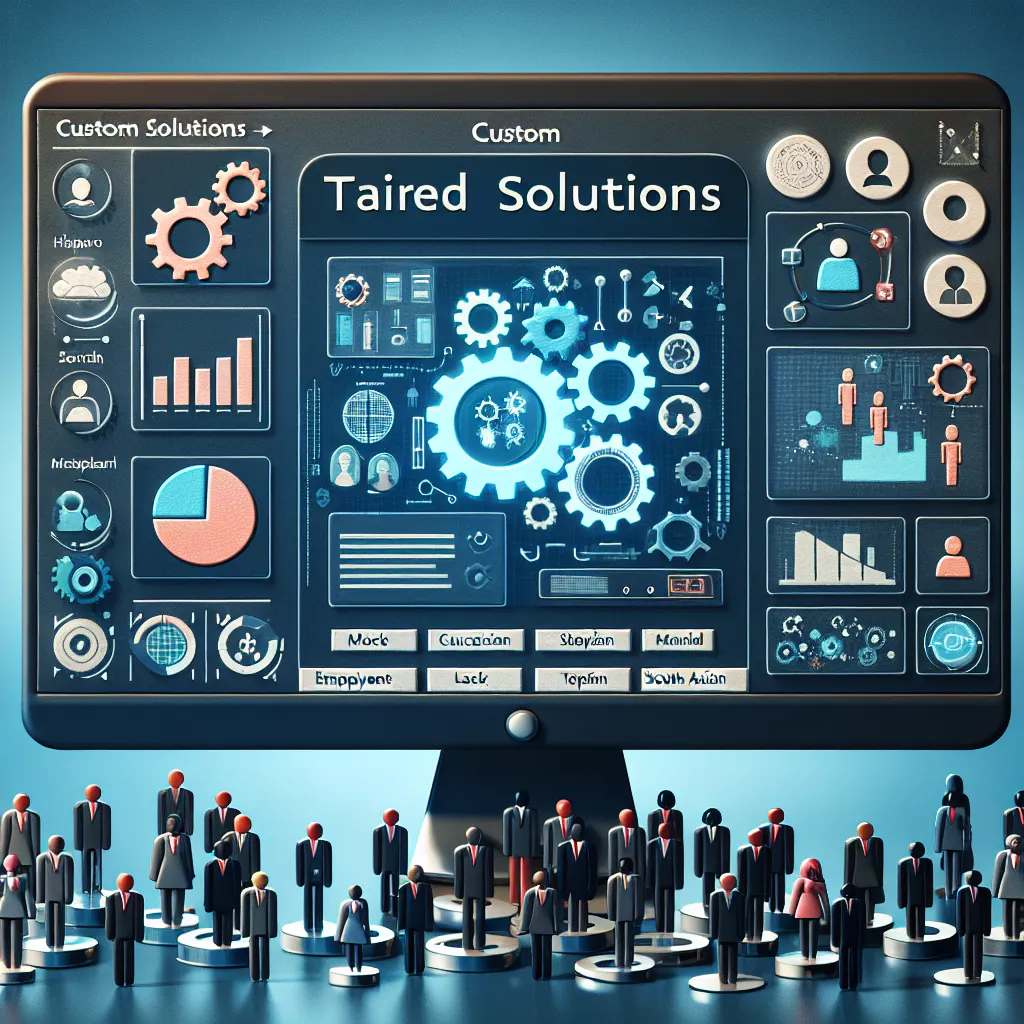
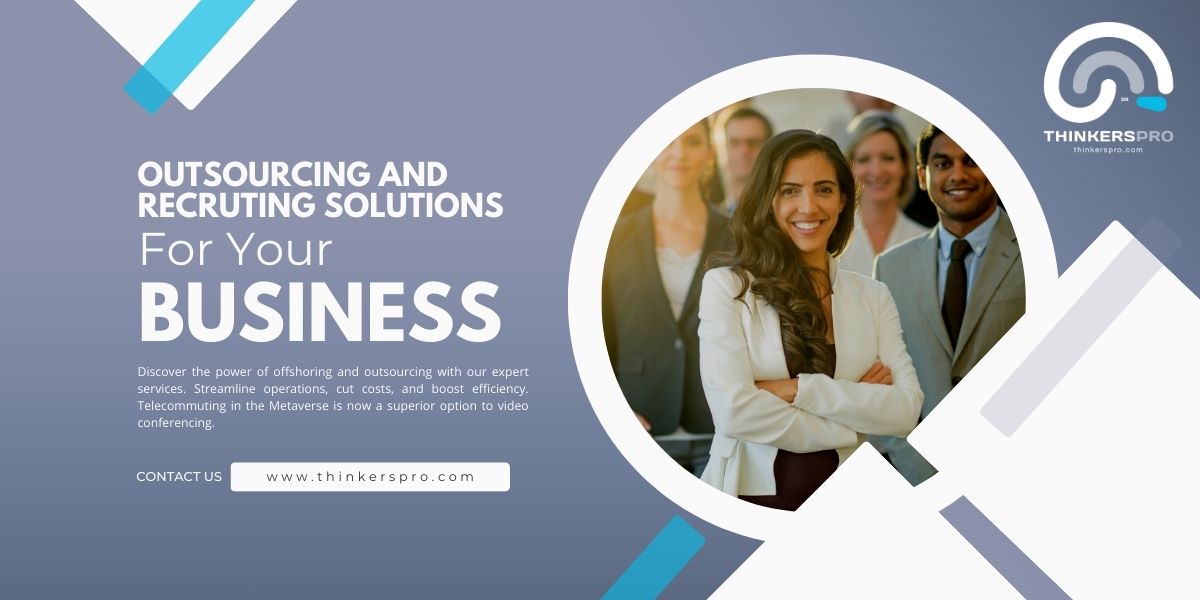


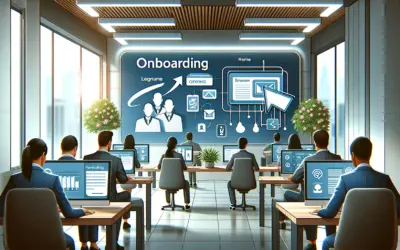

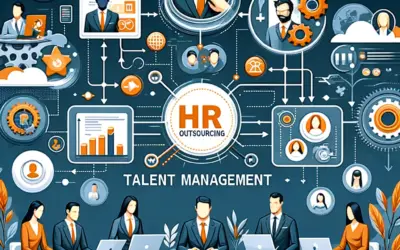
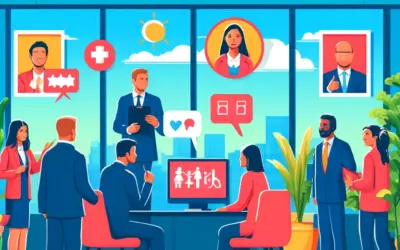




0 comentarios